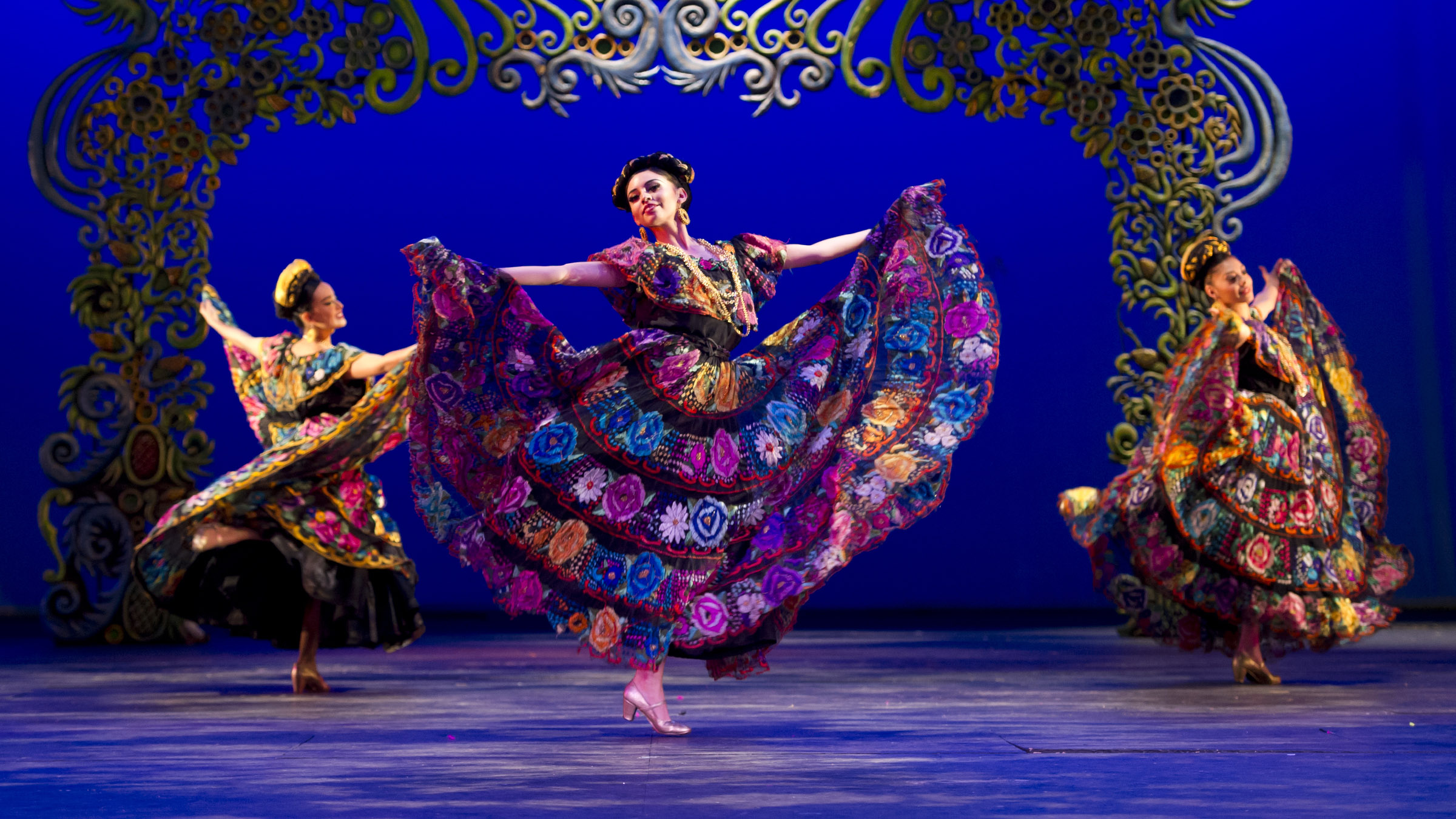Ballet Folklórico de México is a cultural treasure of Mexico; the group is celebrating its 70th year of awe-inspiring dance.

Ballet Folklórico de México is a cultural treasure of Mexico; the group is celebrating its 70th year of awe-inspiring dance. The dance troupe has toured more than 80 countries and, on March 16, brilliantly brought the colorful history of Mexican folklore to life at The Noorda Center for the Performing Arts at Utah Valley University (UVU).
The word “folklórico” means “folklore” in English and describes the traditional dances woven with culturally unique proverbs and tales. The company creates a story through music and dance that immerses the audience in the history and power of Mexican folk dance. Since the group's founding by Amalia Hernández in 1952, the ensemble has grown in size and influence. They perform three times a week at the Palace of Fine Arts in Mexico City. The ensemble has toured over 100 times and has performed in more than 300 cities.
“It is incredibly important to us that we present and host authentic groups like Ballet Folklórico,” said Alex Malone, The Noorda Center for the Performing Arts executive director. “We wanted to find a company that lives and breathes the dance, not just presents a representation of the dance. We are thrilled to have their vibrant talent and stories on The Noorda stage.”
UVU School of the Arts (SOA), which is committed to students’ engaged learning, also invited Folklórico dancers to hold a masterclass for students enrolled in UVU’s dance and culture class. The course fulfills the required global/intercultural credit, which was created as part of an initiative to foster student awareness of various cultural perspectives and experiences.
“This masterclass is an excellent example of the engaged learning model — learning by doing,” said Angie Banchero-Kelleher, UVU dance faculty member and instructor of the dance and culture class.
Banchero-Kelleher said students took a movement class with guest artists from the company to create new knowledge and a deeper understanding of Mexican culture. Then they described, analyzed, and interpreted the movement vocabulary utilizing a framework they previously learned in the Laban Movement Analysis class. Finally, the students connected this material to the culture by discussing it with the guest artists.
The performance itself served as an engaged learning opportunity for students on the production team who worked on the show’s technical aspects, at The Blair Family Box Office, and in “front-of-house” positions.
Alex Malone said that The Noorda sets itself apart from other university presenting organizations by hosting professional artists who engage with the students. “Whenever we can tie something back to our students and expand the learning in the classroom while promoting student success, we really shine!”
In addition to providing an engaged learning opportunity, the production and its ensemble from Mexico represent UVU’s commitment to representing diverse voices on campus.
“The intersection between the arts, entertainment, and our curriculum strengthens our connections to our shared global experience,” Banchero-Kelleher said. “Through the arts, students at UVU are able to learn about other cultures in an impactful way.”
“This is an actual Mexican dance group, so their stories are authentic,” said Erika Stone, director of marketing in the UVU SOA. “The costumes, the way that they dance, the way that they portray their culture — all of it is steeped in their own Mexican culture, history, and folklore. It’s a part of a larger initiative to have more diverse programming on our stage.”
To ensure the performance was accessible, The Noorda reached out to the Latino community in Utah Valley and Salt Lake City. They offered discounts that made it affordable for all.
“Representation on the stage matters in terms of who's coming to see the shows, who has access to art, and who has access to theatre,” Stone said.
“We want every person who comes through the doors of The Noorda to have the opportunity to see themselves on our stages and feel like they belong,” Malone said. “When we can hear, see, and feel the stories of the people who live and breathe cultures other than our own, we can truly open up our hearts and broaden our perspectives.”
For more information on The Noorda Center for the Performing Arts or to purchase tickets to upcoming events, click here.